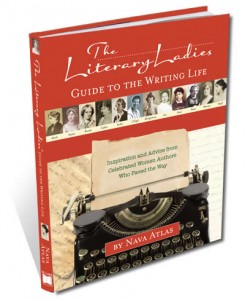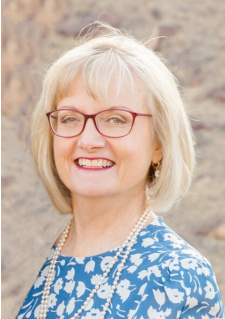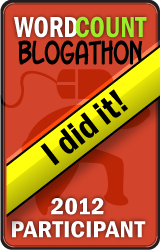I am thrilled to have Nava Atlas, author of The Literary Ladies Guide to the Writing Life guest blog today. She has such valuable information that she will be back tomorrow with Part 2, and we’ll have a giveaway of her beautiful book tomorrow.
When discussing the challenges faced by women authors of the past in The Literary Ladies’ Guide to the Writing Life, one of the questions I’m asked with startling regularity is why it has always been so difficult to master the work/life/motherhood balance. It was grueling for Harriet Beecher Stowe in the nineteenth century; and while it may have been somewhat easier for Madeleine L’Engle in the twentieth, it was just as guilt-inducing. For those of us who write today, there are still no easy answers.
I’m not one to bandy about gender stereotypes, but it’s hard to dispute that in traditional relationships women still bear the greatest share of childcare and household management. This is tricky enough in situations where both partners work, and even more so in instances where the woman’s work is something she actually likes and that gives her creative gratification. The impulse is always to put others first—if not our kids, then our parents, or our partner, or our community. How dare I take this time to write, our guilty mind frets, when there’s so much to do, and when so-and-so needs me?
In times past, if a woman wanted to give her all to her writing pursuits, she often had to forego family life. Fewer than half of well-known women authors of past generations were mothers. Of the twelve authors I focus on in this book, only four were mothers (Harriet Beecher Stowe, Madeleine L’Engle, L.M. Montgomery, and George Sand), and that’s a fairly accurate reflection of how the profession was in the past. Now, more women writers than ever want to enjoy a fulfilling creative life as well as a family. It’s comforting to learn that women authors of the distant and not-so-distant past, like most of us, muddled through as best they could, and dealt with daily disruptions and longer interruptions. And yes, they felt guilty, acknowledged it, and wrote anyway. They just couldn’t help it.
Harriet Beecher Stowe was the mother of seven children. Despite the rigors of raising a large family, attending to household duties, and doing paid writing to help with expenses, she burned to write the anti-slavery story that would become Uncle Tom’s Cabin. She expressed her desire for a private place to write and for more more domestic help. She also wrote of her guilt, as in an 1841 letter to her husband: “Our children are just coming to the age when everything depends on my efforts. They are delicate in health, and nervous and excitable and need a mother’s whole attention. Can I lawfully divide my attention by literary efforts?”…Continued tomorrow
Nava Atlas is the author of The Literary Ladies’ Guide to the Writing Life, as well as many vegetarian and vegan cookbooks. Visit the Literary Ladies web site and VegKitchen to learn more about her work.




I’m excited for Part II. Finding balance between motherhood, writing and life is a delicate balance and hard to achieve. But I feel compelled to write, and silencing that part of me wouldn’t make me a better mother. Awaiting the rest of the post . . . thanks for sharing.
I’m with Tia – can’t wait for part 2! I wish we could have a day with some of these wonderful women from the past and ask “how did you do it all?” I have a hard time with a job and two children, much less seven! My writing often suffers, and honestly I haven’t done anything other than blogging since mid-November, when I gave up on NaNoWriMo. More of the story is there wanting out, but when?? I tell my husband I need x amount of time to write – deal with the kids. But toddler wants only Mama in the evenings and cries for me and I give in.
Hi Ladies,
Isn’t this an authentic post? It’s encouraging to me that this balancing act is not a new idea. Ugh!
Make sure you come back for tomorrow’s Part 2 and the giveaway. 🙂
I LOVE it! She really hits the heart of where most of us live. I am also looking forward to part 2!!
What an interesting post! I always admire any mother with more than one child because I know how tough it was to juggle just the one and “life.” Can’t even imagine more…seven makes me shudder! Looking forward to tomorrow’s post!
Hi Kate and Julie,
I know I keep saying this but love, love, love this post. And Literary Ladies is an inspiring book – it speaks to our writer mama souls.
j
Guilt-inducing, indeed. When I think of it, though, I know that I am a better mother when I write. And, becoming a mother brought me back to writing after a 10-year hiatus. I can’t imagine not being a mother nor can I not imagine being a writer. We are lucky to be able to (attempt) to do both in this modern age. Looking forward to reading more tomorrow.
I’m not sure if I’m supposed to comment today or tomorrow, so I’ll do both! I work full time, try to blog, try to do arts and crafts, AND I have three kids. Luckily, my kids are a little bit older, so they’re pretty self-sufficient, but it’s still HARD!! I don’t know how past generations did it all!! There is always SOMETHING that suffers for me. If it’s not my writing, it’s my kids, or my crafts, or my work! I can NEVER do everything to the best of my abilities, because there’s just not enough of me to go around!! I am looking forward to reading Part 2, and I’m looking forward to the giveaway!!
Writing, like any other creative pursuit, takes full attention. Children, another creation, take full attention. In both writing and childrearing, one’s logical mind and intuitive mind are fully engaged, fully attentive.
In the case of children, if you are not fully attentive, the creation you love could be hurt or die, be emotionally or physically maimed for life, or lost forever.
In the case of writing, well, you can pick this up tomorrow. It sits on the page, waiting for you to come back to it. We are wired to respond to what calls for us in the night. And in the case of writing and motherhood, the kids yell the loudest.
It is very much about gender, and it’s about having a very full house of preoccupation, all squalling for attention.
We feel guilty, perhaps, because we love one more than the other.